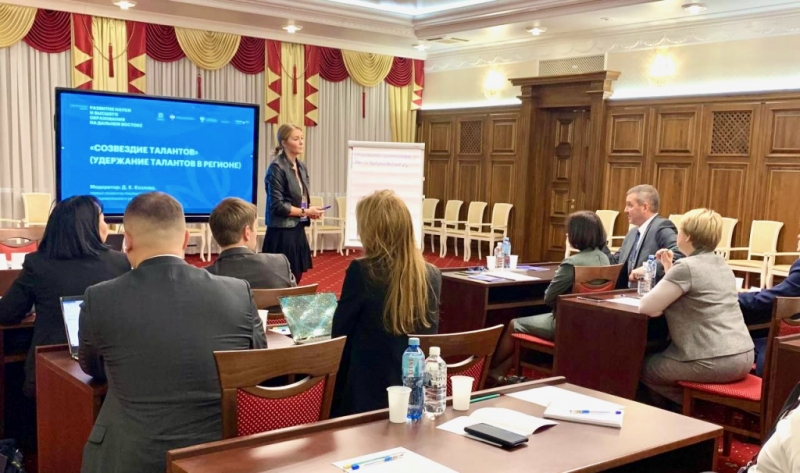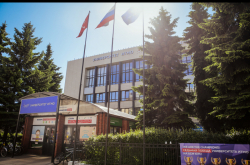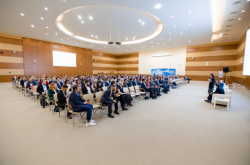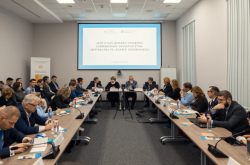Five universities of the Russian Far East passed the selection to become participants of Priority 2030. According to the program’s rules, they will receive a grant as well as expert support from representatives of the Ministry of Science and Higher Education and the nation’s top universities. This strategic session was one of the first events held as part of that endeavor. Among its key participants were: Valery Falkov, the Minister of Science and Higher Education; Alexei Chekunkov, the Minister for the Development of the Russian Far East and Arctic; Mikhail Degtyarev, the Governor of Khabarovsk Krai; Vladimir Solodov, the Governor of Kamchatka Krai; and Andrey Volkov, scientific coordinator of the Priority 2030 program – as well as rectors and vice rectors of top Russian universities and representatives of the government and various businesses.
During the strategic session, the participants identified the region’s “problem spots” and worked out a plan of approach to the set tasks. At the core are six challenges relevant to the Far East region:
- universities’ potential as sources of qualified staff;
- the region’s educational infrastructure;
- accessibility of higher education;
- graduate employment and employer satisfaction;
- universities’ competitive ability;
- and talent retainment.
A working group was assembled to tackle each of the challenges while representatives of the leading Russian universities participating in Priority 2030 were brought on as moderators. For instance, ITMO University’s First Vice Rector Daria Kozlova shared her knowledge and experience in promoting educational programs and attracting talented students in her role as the moderator of the Constellation of Talents working group, which focused on the issue of talent retainment.
At the session of the Priority 2030 program. Credit: priority2030.ru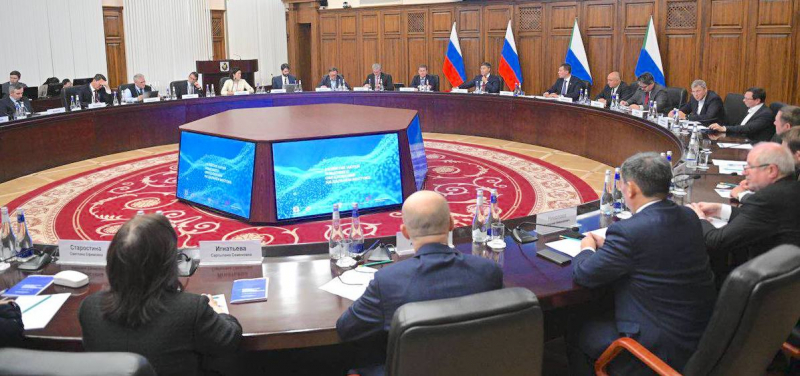
Speaking to the participants, Dr. Kozlova mentioned that the subjects brought up during the discussion were, in fact, relevant not only to universities of the Russian Far East, but to those of all other regions of Russia; she added that events focused on the exchange of experience, such as this one, are highly important to the development of the overall higher education system.
“Today, Minister Valery Falkov presented a very comprehensive and incisive report. He talked about universities local to the Far East, but, in essence, he highlighted the challenges faced by all Russian universities. It made me think about ITMO’s challenges, too. I believe that a dialogue between the different universities is very necessary: we all have the same issues, and we need to discuss them not within the university or exclusively with the Ministry of [Science and Higher] Education, but with each other. Right now, we think this brainstorm is about solving the issues of the Far East, but in truth we are solving the issues relevant to Russian higher education in general.”
One of the most efficient solutions to the issues discussed at the session will be the introduction of new cutting-edge and relevant educational subjects at Russian universities. For one, it has already been announced that in the next 10 years, universities participating in Priority 2030 will begin to train students in 300 new specializations: a majority of these are related to digital technologies, new materials, neurotechnologies, artificial intelligence, and other bustling fields. For ITMO University, that means new Master’s degree programs in quantum technologies (already launched in collaboration with Russian Railways) and laser- and synchrotron-based megascience technologies.
As noted by Dmitry Chernyshenko, the Deputy Prime Minister of Russia, the creation of these new programs is a direct response to the market’s request for new, highly-qualified staff who possess a variety of digital competencies.
